
Introduction:
One of the top clubs in football history – FC Barcelona has had some great players along with inspirational coaches who have helped lift their success. The coaching lineage at the club reads like a who’s who of football masterminds, all aiding in their success, not only throughout Spain but on the world stage. Whether it be the revolutionary tactics of Johan Cruyff’s earliest years at the final club, or Pep Guardiola and tiki-taka, Barcelona is a legacy of tactical genius.
As their solid group continues to age, the mentoring staff; driven by veteran Hansi Flick offers a little more positivity and hope for future success and victory over the world. Following on from this theme, we delve through the history of FC Barcelona coaches, looking at their philosophies and achievements as well as how they left an indelible mark upon our club.
Hansi Flick: A New Era Begins
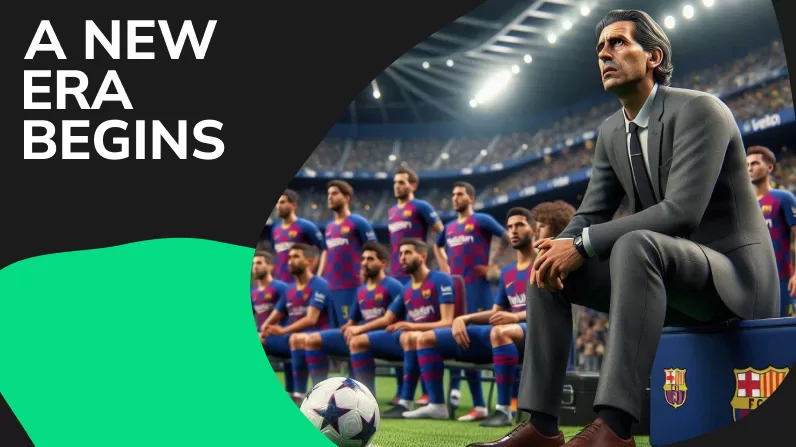
Background and Achievements
The appointment of Hansi Flick as head coach at FC Barcelona will be a milestone in the history of the restarting club directors. Flick, who had a successful reign at Bayern Munich, is an experienced coach from Germany and already has proven he could win on the biggest of stages even in a random position. In his time with Bayern, Flick won the Bundesliga and UEFA Champions League among others in addition earning him a deserved reputation as one of football’s brightest coach. His legacy at Bayern was not just trophies but a serial-winning culture that made them one of the most recurring forces in Europe. He may not win the UEFA super cup in a new head coach role but his eight wins in Bundesliga even in quarter finals or in season generously are formed with great power. And this is Flick’s vision for Barcelona, to reinvigorate the club and return its place at football power hierarchy.
The career of Hansi Flick began in his home country Germany as a midfielder before he progressed into coaching as a manager. He began to establish himself as a coach when he was hired by Joachim Löw in 2004 and became his assistant with the German national side where the national team beat Spain, France, Brazil, Japan and the others. Flick was part of the Germany coaching team that led them to the World Cup tournament 2014 where they knocked Brazil again. His success with the national team did not go unnoticed, and he took on an assistant coach at Bayern Munich before becoming head coach. Bayern won eight in the UEFA Champions League 2019-2020 during his reign versus rivals. And now the new coach of FC Barcelona, Flick looks set to introduce its winning mentality and tactical nous in a job to achieve record of the wins in La Liga.
His Man-Management Style
Flick’s approach is based on high-pressing, rapid transitions and balance to attack/defense. The ability to be tactically flexible and adjust based on opposing teams is one of the trademarks from his time as a manager. Flick wants to combine this approach at Barcelona with the direct, attacking mindset associated with head coaches across history and without a real emphasis on winning or possession. This new plan, along with high pressing and rapid transitions is supposed to give Barca an extra string in their bow making them less easier to face. The agreement is unable to repeat because of the Bayern presidents who signed him for a head role, but Flick’s tactical nous and man-management will be important as Barcelona enters a difficult transition.
At Bayern, Flick has the belief that football is a system and not just its components. The rationale behind the intensity in his training sessions is that they resemble actual match conditions. This is meant to have the players ready for what competitive football takes out of them physically and mentally. The other thing on which Flick laid a particular stress is team unity as per him no matter how good the players are but the motivated and cohesive squad will succeed. Through encouraging and empowering the best in every player, Flick helps make each of his players stronger as a collective unit.
Vision for FC Barcelona
In his plans, Flick sees Barcelona challenging for major honors across the board. His ambition is to drive the club back towards its previous peak by creating a side that snot only expertly efficient but also mentally robust. Combining young players within the senior ranks, alongside a group of experienced leaders, Flick is keen to create an amalgamation that gels and is more capable of winning titles on a regular basis. The ability to combine youth and experience is a trademark of any successful side, while Flick’s history would seem to make him the man for just such a job. An advocate of building from within, rather than relying on big name signings to fire them back towards the top, Flick hopes that by creating a hard working and disciplined culture at Barcelona he can bring about a winning mentality which will have his side challenging for major honors once more.
Flick knows duality: Talent will only come through La Masia but stars of the future must be molded in house, too. He intends to promote more academy youngsters into the first team going forward, keeping up another club tradition of developing players from within. Moreover, Flick wants to add stability at the back – a facet of Bayern’s play that has often been doubted in recent seasons. The only way for Barcelona to provide depth on the attacking end and improve themselves as a more balanced unit is by constructing a sturdy defense from behind. In his own words, Flick’s vision is not only for the club on the field but to also have that deep connection between supporters and their team.
The Coaching Staff
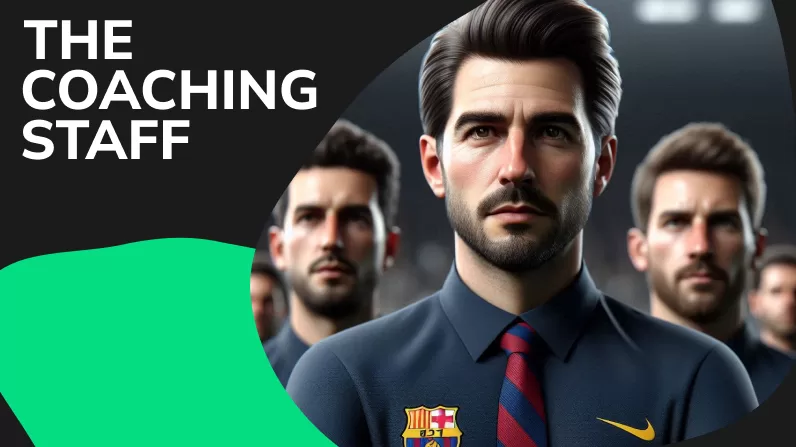
Assistant Coaches
At the heart of it all are Flick’s assistant coaches, whom he needs to ensure can help him put his ideas into practice both in training and during games. Training sessions, game observation and tactical set up are all things that they manage. These coaches come with wide-ranging experiences and knowledge, making the coaching team robust and efficient. In fact the season really starts in September or November when the UEFA UCL groups starts. Assistant coaches are far too often overlooked, but they bust their asses in the background of it all to make sure that team is ready each and every game in every tournament they participate. Barcelona need their ability to communicate and execute Flick’s tactical instructions to get a good season so they can win in many games without Xavi and the other manager. Real Madrid and Paris Saint Germain are hooked on a feeling with Hansi Flick but he decided to take his game to the next level to get everything in the final.
The assistant coaches who support Ronald Koeman come from all walks of life and have a rich heritage within the club. This includes ex-players who know the principles and traditions of the club, as well as experts in fitness, tactics and psychology. Because each has an important role in keeping the rest of his teammates at a high level and performing optimally. Additionally, it is the job of assistant coaches to walk that fine line between their players and head coach in order to make sure everyone knows what needs to be done on both ends.
Other Staff Members
Other touch points include not just the assistant coaches but members of a broader coaching group like fitness trainers, goalkeeping coaches etc. as well other from health personnel side. Everyone is important in installing the player’s mental and physical health. Their teamwork is vital to uphold the high standards required by a club like FC Barcelona. Fitness trainers keep the players at peak fitness, goalkeeping coaches develop our shot-stoppers skills and the medical staff ensure injuries are resolved quickly. The team all work together to create an environment in which the players can focus purely on getting results.
The entire coaching staff deserves more than its fair share of the credit. Personal Trainers, to create tailored training programs in order for the players to come into a game with optimal health and fitness. Goalkeeping coaches are the ones that pay special attention to developing all technical and tactical skills players will need for each game. The medical team is crucial, doing the necessary to mitigate any injuries and ensure that players recover quickly in a healthy way. Working together as a coaching staff goes hand-in-hand-creating that holistic support system behind the scenes…is what frees up the team to attack their goals on game day.
Legends of the Dugout
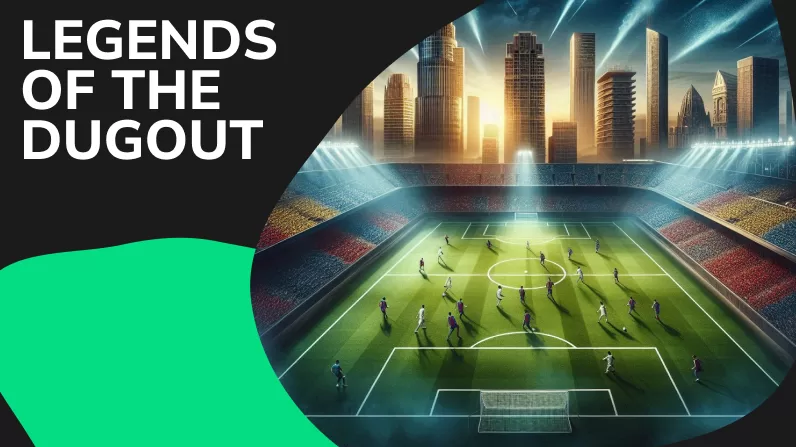
The Designer of Whole Soccer:Johan Cruyff
Johan Cruyff: The person who had more influence in the world of coaches at FC Barcelona His implementation of the “Total Football” philosophy changed everything at the club and set it up for years to come. Cruyff’s focus on expansive, attacking football and positional play changed how the game was played forever – a philosophy that Barcelona still follows to this day. Cruyff was not the sole reason for this as his vision with regards to Barcelona did not just simply entail ensuring that they had a production line of potential superstars flying out from their youth academy La Masia up into the first team. Barcelona went on to win several major titles during Cruyff’s time in charge, including the European Cup (now Champions League), and his influence is still clear in every part of Camp Nou.
Cruyff’s philosophy was revolutionary with regard to soccer. In his mind the best style of play was through fluidity on both sides, players who could play multiple positions and fit all areas well. Not only did this make Barcelona a frightening side to face, it also set the tone for football tactics across Europe. The foundation of Cruyff’s coaching was his ability to bring out the best in players and mold a group that played with flair, as well as confidence. The Argentine leaves a legacy at Barcelona that extends beyond trophies and into lasting marks on the philosophy and approach of this club.
Pep Guardiola: The Master of Tiki-Taka
Pep Guardiola-a student of Cruyff-took the Barcelona mold to unprecedented levels with his “tiki-taka” concept. He presided over Barcelona during their most successful period since the 1990s, overseeing two Champions League victories. Pep Guardiola revolutionized the game by focusing on quick, short passes and a high-pressing style that led to one of the greatest club sides ever with his fantastic abilities. Guardiola, with his eye for detail and desire to reinvent the front-line pressing tactics of English coach Bobby Robson in a way that would cement both Barcelona’s dominance domestically and place them firmly – almost invincibly – on top of Europe. His coaching era brought through players like Lionel Messi, Xavi and Iniesta as global superstars with Mourinho widely credited for his tactical influence on the modern game.
The foundation of Guardiola’s approach was possession and pressing, as well as integrating player intelligence with a tactical understanding. His teams were famous with their control of play and the chances it produced, all built from passages of fine mesmeric passing football. Success sweetest for Guardiola in beauty of Barcelona evolutionNothing more eloquently epitomized Pep’s shift to greatness than the transformation he instigated; born were 19th-century English village teams, excreting football roulette and eye-baffling hip-swiveling wing play. That influence went beyond Barcelona with many coaches around the world taking elements of his tiki-taka philosophy and applying them in their own way.
Other Legendary Coaches
Barcelona have had other legendary managers as well besides Cruyff and Guardiola. There is a range of different characters as well, with the likes Frank Rijkaard that led them to Champions League glory in 2006 and Luis Enrique under whom Barcelona claimed their famous treble win in 2015. Rijkaard rebuilt a faltering side into one that could win titles but it was the aggression of Luis Enrique’s play, his dynamism too with no nonsense defending and dominance in midfield which led to success on an unparalleled scale for the Blaugrana. All, in their own way, have woven the rich tapestry of Barcelona’s coaching legacy.
The corresponding period of Frank Rijkaard at Camp Nou was game-changer for Barcelona. He brought a calm demeanor, coupled with the ability to effectively manage star players and it created an environment of unity that played into their success on the pitch. It was a decision which helped play an essential role in molding the club’s future, with Rijkaard deciding to promote fresh talents like Lionel Messi into first team action. Barcelona did not win a title for six years before the arrival of Guardiola and under his charge, they ruled Spanish football as well as Europe.
Luis Enrique made Barca a different, more aggressive and direct team. Allegri managed with a high-octane, and at-most-times domineering style that often left opponents in its slipstream. This included the treble in 2014-15, when Barcelona won La Liga and Copa del Rey before completing a Champions League triumph. The fact that Luis Enrique was so adaptable tactically and obsessed with fitness made a big difference to Barcelona in this time frame.
The Innovator: Coaching Philosophies and Tactical Evolution
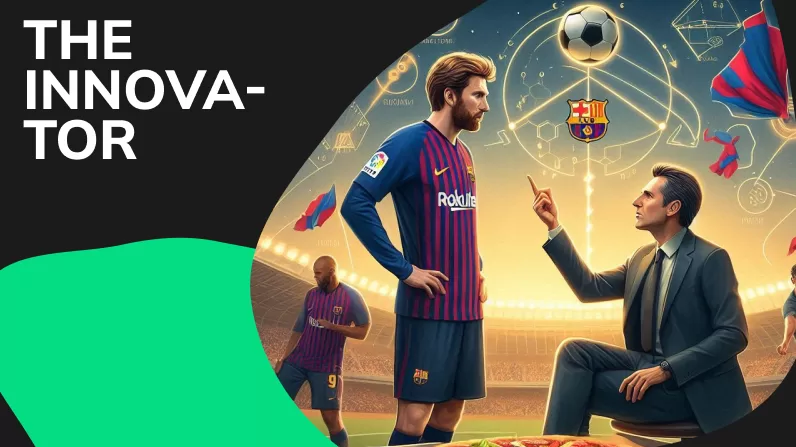
Cruyff’s Legacy
Cruyff had a profound impact on Barcelona that extended far beyond trophies and titles. His La Masia, the youth academy has simply churned up world class footballers over generations. Defined by technical skill, tactical intelligence and creative freedom-echoes of Cruyff’s philosophy that remain in place to this day. Promoting youth players while playing attractive football has been the mantra of Barcelona for as long as any fan can remember, and it now appears that fans have had their fill. Total Football was Johan Cruyff’s vision, of course: the idea that players can play in multiple positions and are at home with technique as much as on a wing or striker.
But Cruyff’s legacy is not limited to – or even primarily in – Barcelona. His theories shaped the football philosophies of both Holland and Spain, while his principles of positional play and team interchange have been widely embraced by coaches across the globe. «My dad’s creativity and Brains on the field has given me things that I never had before… very luckily My dads Way of playing still inspires new Players, coaches» – that’s what his son thinks about probably the best coach ever. He was a maverick thinker, very much ahead of his time; he never allowed the lows to dictate terms with him and for that reason alone we consider him visionaries in football.
Guardiola’s Revolution
Pep revolutionized the tactical ideas. The Swiss had brought a forensic approach to training, with an emphasis on the small details and getting the best out of his players in what was then professional head coach football. His coaching ethos marked by possession and pressing has been lauded around the globe; influence of Guardiola on different coaches worldwide. Guardiola also introduced the concept of “positional play,” where all players make specific movements so that they stay in relevant spaces on the field, compounding passing lanes and keeping team shape. This method not only brought a significant amount of success but it also completely transformed the game at its highest level.
The key ingredient to Guardiola’s success was not only his tactical innovation, but also being able to instigate a winning mentality within the team. He spoke about mental toughness, levels of discipline and working together as a team. The practices of Guardiola have been studied and emulated by coaches throughout the world, much of today’s top level is witnessing his shadow at once. His spell at Barcelona set a footballing high-water mark that has influenced the direction of travel in the modern game.
Modern Adaptations
Modern football has changed these philosophies, although Barcelona coached in the last years etc. Today, sports science is a key component in this vicinity with innovative training techniques and or advanced analytics. Both Ernesto Valverde and Ronald Koeman, coaches with their own ideas of playing have made compromises to converge them into Barca traditions mixed with contemporary tactics. Today’s game consists of a combination with a solid philosophy accompanied by the alternative to sit back and counter-attack when needed. Such development adapts to allow a side like Barcelona to continue to compete on such an evolving football landscape as if they stand still in any era, it could be costly.
Valverde’s style was more pragmatism, with a good solid defensive base and counters. Under his leadership, Barcelona also dominated at home but he came under occasional criticism from fans used to the more adventurous style of play produced by Guardiola. However, Valverde’s tactics did bring some stability and subsequent success in La Liga.
Ronald Koeman took over with key departures and financial limitations. His pragmatism toward rebuilding and commitment to youth development have been essential in doing just that. With La Masia finally being utilized again, Koeman will always have the future of the club safe and it seems its reaping rewards for him. The fact the Spaniard has been able to adapt tactically and manage a side in transition (with many off-field issues at that) so well is praise-worthy on its own.
This is How The Coaches Matter for Player Development
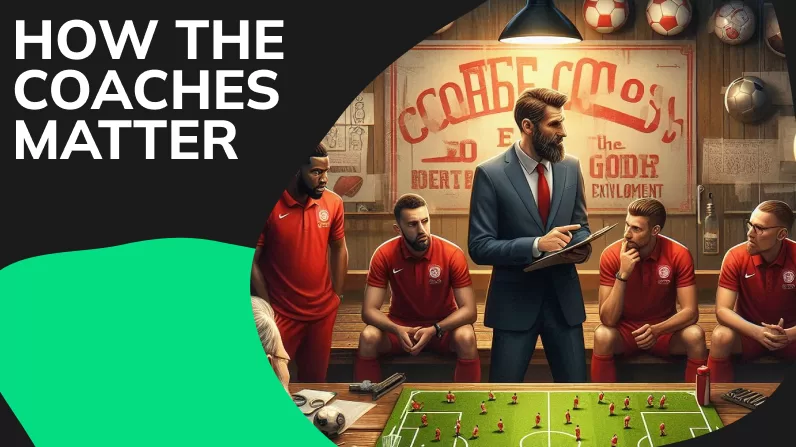
Nurturing Young Talent
A cornerstone of Barcelona’s success is their commitment to developing young talent. The club’s coaches highlight this and place a strong emphasis on developing players from within the club, meaning that the first team is regularly replenished with technically sound and tactically aware footballers. This commitment to developing youth has resulted in legends like Xavi, Iniesta and Messi. The progression from La Masia to the senior team is smooth, with space for arriving kids to experience and improve in accordance with club visions. With this dedication to raising its players, it lets Barcelona keep their style of play going on and competitiveness for years.
La Masia is more than just the area and at the core of Barcelona Football Club. The academy is designed to produce players who are complete technicians, tactically aware and strong-minded individuals. Graduates of La Masia are taught the basic principles, such as freedom, team-play and even game reading. This manner of development fielded some of the greatest footballers in history, who took their unprecedented success to other heights.
Elevating Established Stars
Barcelona pride themselves on youth and given the relative expense of bringing in mature talents, La Masia has to be a priority for sustainable future brilliance. Coaches ensure the players reach their full potential, and in doing so they allow seasoned professionals to increase new heights that thus help them succeed as a team. Barcelona’s coaching influence has extended to the careers of players such as Ronaldinho, Neymar and Suarez. Suchuality of being able to handle egosand integrate stars into a system which is far from utopia has long escaped Arsenal, but appears somewhat straightforward for the men in charge at Barcelona.
The coaches at Barcelona know how to manage star players. These guys, in creating a workplace where the players feel respected and want to give their all. Coaches who develop true relationships with their players are able to ignite and maximize the potential in every player on an entire team. Barcelona’s ability to handle both promising talents and established superstars is a significant factor in their continued prosperity.
Driving the Boardroom and also the Stands
Relationships with the Board
Barcelona’s board provided an unstable environment, and successful coaching at the club requires a complicated dance there. That means managing expectations, sealing transfer targets and said player fitting into the long-term picture at the club. Building chances to ensure productive relations with your board is rooted in great communication and mutual respect Since it decides on signing of new players, extending contracts and implements other strategic decisions related to football management. It leads to a better coach/board harmony allowing the coach the tools and support he/she needs to do what is asked of them.
The board of FC Barcelona is a fundamental part in the society that manages and administers one of the most successful football clubs on planet Earth. The president and other directors are supposed to make important decisions that affect the direction of the club. The coach and club’s vision are gonna go in the same direction, you would hope. One cannot exist without the other, and it is important that this collaboration exists both on and off of the field. This approach establishes mutual trust and respect between the coach, who holds regular communications with a board member or members not only to keep them informed of progress but also contact them when crisis hits whether that be on-the-field issues consumer off it helps forge into areas.
Connecting with the Fans
One other key aspect of a new coach in connecting with Barcelona’s fervent fanbase. Products on the field must be representative of community values and club tradition.FC Barcelona coaches will learn about cultural currency, what FC Barcelona means to its supporters. If so, creating a positive relationship with the fans will go a long way in boosting team morale and performance. Fan engagement is important thus managers, players and staff alike have to work through media obligations as well public appearances or social media. When the fans feel a connection with both their club and coach, this gives everyone at the Club more encouragement.
The fans at FC Barcelona always deliver full-throated backing and support. Their job is to generate an atmosphere in the stadium that can only be described as electrifying and one of a kind at the Camp Nou. Players should realize how important this support really is, and coaches must be able to recognize the sort of enthusiasm that fans can produce. This fan base has the ability to motivate or bring a dark cloud over an entire team. Strong connections between coaches and fans can create positive environments that push players to perform at their peak level of performance. This relationship between coach, players and the fans is going to be crucial in helping the club to continue its success.
Challenges and Opportunities
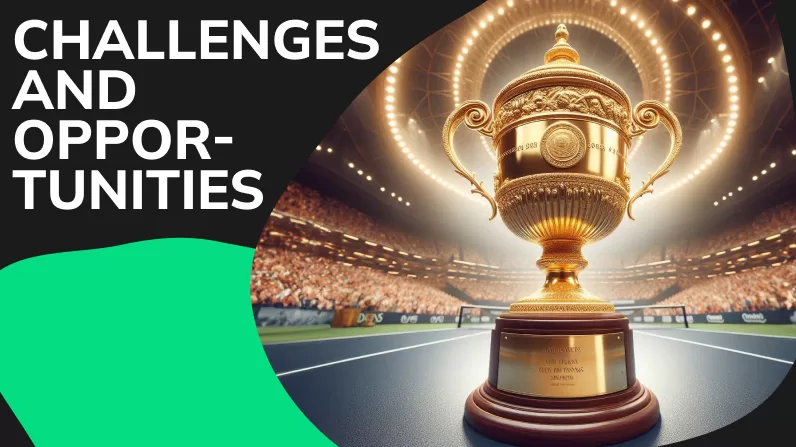
Dealing with the financial constraints
In recent years, Barcelona have had to cope with some severe financial troubles making it seemingly difficult for them to sign top players and invest in the squad. They are constraints that coaches have to work within when trying to keep a team competitive. Innovation, doing more with less, and a focus on domestic talent. Whilst effectively using the club’s assets such as world-class youth academy and expansive scouting network, managers are able to create a squad capable of competing at the highest level even on constrained budgets.
Limited finances have forced a rethink on how Barcelona plan their squad developments. The club now faces difficult transfer and wage management decisions. The coaches have to liaise closely with the sporting director and board, who need to find creative solutions for cheap additions and existing squad potential. Barcelona needs to hone their concentration on nurturing young talent and buying smartly in order to leverage itself from the financial woes that are likely headed our way, but I do think we can still be competitive.
A New Football World
The scenery of football is ever-changing, with new approaches, technologies and trends making their way into the field. Barcelona coaches will be looking to keep one step ahead of the game and tweaking their strategy accordingly. This requires incorporating contemporary training programs, leveraging sports science and using data analytics to remain at the forefront. To remain ahead of the entrepreneurial curve, Barcelona will need to set an example for world football.
Their use of data analytics and sports science has taken center stage in the modern game.
Advanced analytics help coaches uncover critical information related to player performance, fitness and tactical efficiency.
This can be useful in developing training routines, understanding how to prepare for a match even better and in being able to make decisions during play. Adopting such technologies would help the coaches in Barcelona to further improve their team performance and stay ahead of competitors.
Conclusion
FC Barcelona’s coaching past is an exhibit of the club’s pursuit for perfection and innovation. From the ground-breaking ideas of Johan Cruyff to Pep Guardiola’s tactical genius, every manager has played their role in establishing what it means to be a Barcelona coach and each one has been part of contributing towards this team winning everything they have. With Hansi Flick at the helm, we are bound to be in safe hands and a great future lies ahead with an impetus on youth development. tactical evolution along with sustainability long term vision for success. For that reason the coach of Barcelona not only designed Barca to be a football fortress, but imprinted the basis for many successes in this world. That capacity to change and grow without losing sight of what makes them special virtually guarantees that they will be world football’s most unlikely juggernaut from here till infinity.
The great philosophy of Barcelona’s coaches is innovation, quality and artful football. Each coach has added their own image and strategy making the history of the club truly memorable. But as the club continues to rise and face new challenges, along with endless opportunities for opportunity, it is past coaches who will continue to lead good examples of attitude that inspire its future generation. The story of FC Barcelona is a tribute to the dominion vision played in football (soccer) and the eternal charm of ‘the beautiful game.’
